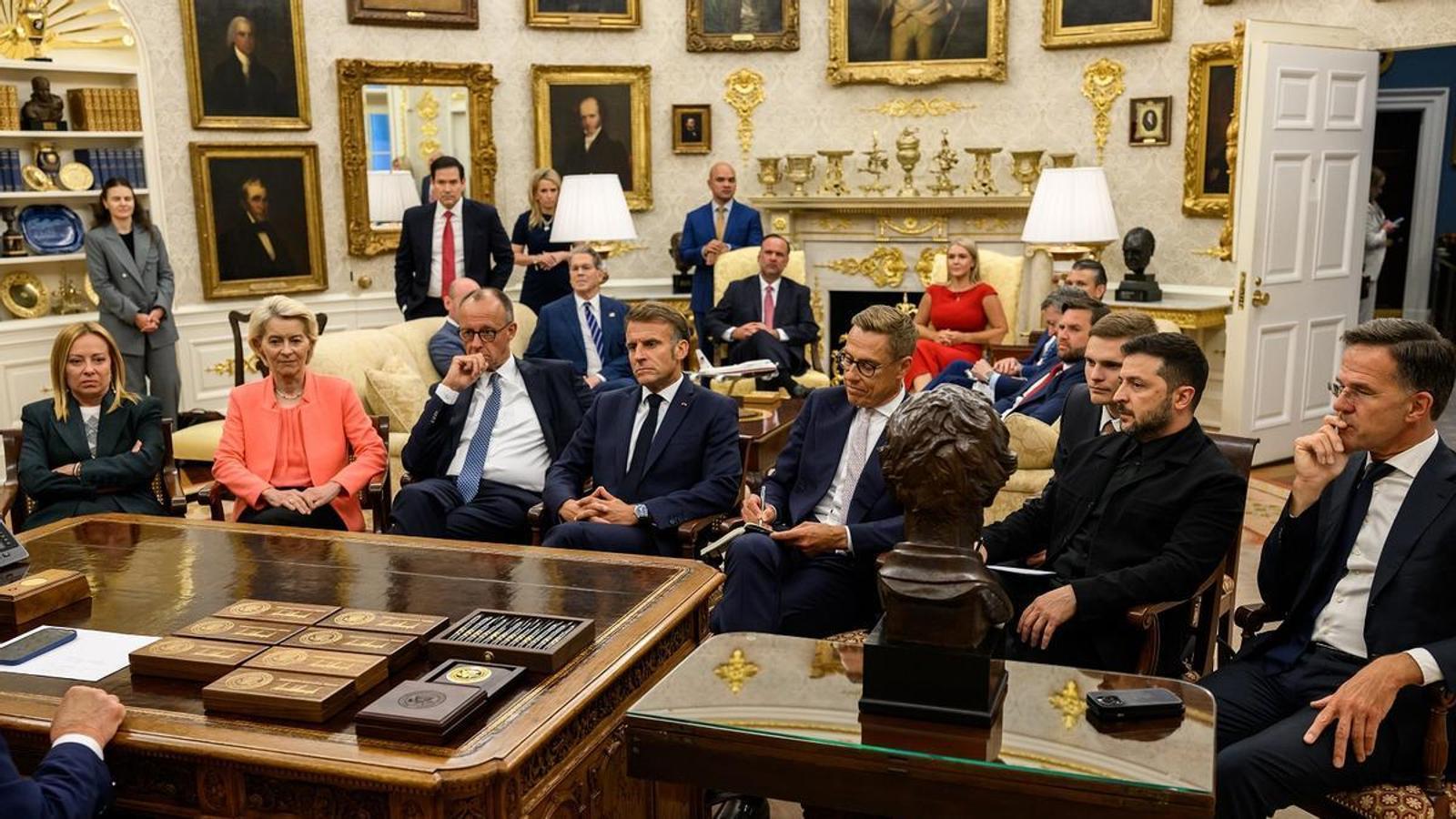

Donald Trump seems to want to reconcile and make coherent two great dangers that the ancient Greeks pointed out for any political regime: despotism and anarchy. His decisions, both forceful and erratic—appointing incompetents, vacillating tariffs, obsession with security, militarism, distrust, etc.—may end up diminishing American power, in contrast to the pretensions of the Make America Great AgainFor his part, Trump is fostering a more anarchic world than the one he found. A self-perceived "greater" United States domestically is not contradictory to a more isolated and smaller United States globally.
Today's world is headed toward growing instability and Chinese hegemony within a few decades, premonitory exemplified by the military meeting and parade a few days ago, featuring the star presence of Xi, Putin, and a couple of dozen non-democratic Asian countries (Vietnam, North Korea, Cambodia). Together, they have a larger population and a larger GDP than the Western states still living under the American umbrella. In part, they represent a belated global revenge of the communist states.
And the European Union? The photo of the Oval Office with Trump on one side of the table and the seven European dwarfs on the other is a striking image of the pathos of an EU that doesn't even play the role of a supporting actor. Wrapped in the rhetoric of "its values," its submission to Trump and its impotence in the face of the genocide in Gaza reveal its face as a non-international player. At the global level, the EU is an expendable entity. And there's no sign of leadership or internal energy that could turn things around.
Instability and uncertainty about the future encourage pessimistic analyses. These analyses often look back to find lessons and guidance for the future. One of the most recent, and I think most interesting, is the book Waste Land by Robert Kaplan (2025), which takes its title from the well-known poem by TS Eliot written over a century ago (1922).
"With these fragments I have buttressed my wreckage" is Eliot's powerful final verse of a complex and obscure text about the political and cultural consequences of the First World War. This is the conflagration that surely most marked the separation between the "world of yesterday," so aptly described by S. Zweig, and a new world whose potential conflicts are now more readily discernible than its hopes.
Kaplan is a journalist with international experience in conflict zones and who can be associated with an anti-Trump American conservatism. He presents Eliot's pessimistic perspectives – along with Decline of the West by O. Spengler (published between 1918 and 1922) as reflections on the first stage of the political and cultural disintegration of the Western world. The anxieties of French existentialism (Sartre, Camus) would constitute the second stage at the beginning of the Second World War, while the period of the 1990s and the current century would become the third stage of a world searching for direction in a "tired earth" (Joan Ferraté), no longer incapable of producing meaning and global political projects. The West today would live in a Weimar Republic on a global scale: "Weimar," writes Kaplan, "could boast of having many liberals and a fruitful intellectual life. There was much hope in Weimar, but insufficient order. We must now avoid Weimar's fate."
This is an analysis that aims to show Eliot's "fragments" and "runes" as a warning from a north, a polar splinter that shows us the path we should try to avoid – curiously, this star is located 434 light-years from Earth, the same number of verses as Eliot's poem contains.
Is that right, Kaplan? Your analysis is engaging and informed, but I think when you look at Emmental cheese, you're looking more at the holes than the cheese itself. The comparative analysis between the situation after the First World War and today has more to do with future uncertainties than with the empirical data that reveal both current geopolitics and the history of the Second World War. There are phenomena that seem to be repeating themselves—the rise of far-right movements in the West recalls elements of the 1920s and 1930s—but the current crisis of political liberalism, fortunately, does not resemble that of Weimar, either in intensity, in the actors involved, or, above all, in geopolitics and ideological polarization.
We are currently emerging from the logic of the Second World War – the Frederic War, the creation of the UN, technological revolutions, welfare states, the arms race, feminism, climate change and ecological problems, the increase in the number of states in the world, globalization, etc. However, whether this will lead to a definitive crisis of democracies or a third world war between new blogs is nothing more than speculation in search of empirical data that, for the moment, is free to formulate – although it is always prudent to formulate them as hypotheses.
Leadership is always a key element, especially in times of profound change. And the West isn't particularly well served in this regard. EU leaders seem to be living life to their hearts' content, leading the Union's decline. Rectification is needed, especially in defense policy, without which no effective foreign policy is credible.

